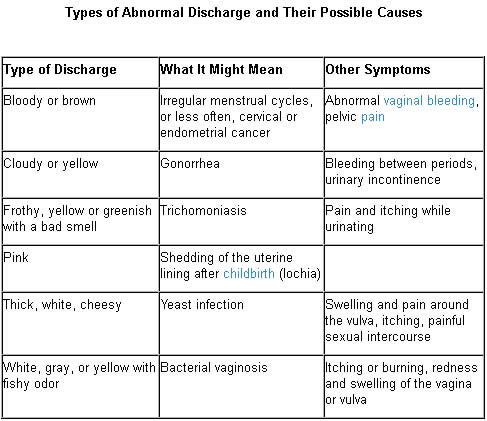Discharge with odor pregnancy
Vaginal discharge during pregnancy: Color and meaning
Pregnancy causes changes in vaginal discharge, which can vary in color, texture, and volume. An increase in vaginal discharge is often one of the earliest signs of pregnancy. Some changes in color are also normal, while others may indicate infection or another problem.
Color is one of the most noticeable changes that can occur. Discharge can be:
- clear or milky white
- white and lumpy
- green or yellow
- gray
- brown
- pink
- red
This article discusses vaginal discharge during pregnancy, including what the different colors of discharge mean and when to see a doctor.
It is normal to have discharge at various stages of the menstrual cycle and during pregnancy.
Healthy vaginal discharge, also called leukorrhea, is thin and clear or white and has only a mild odor.
The volume of discharge increases throughout pregnancy to reduce the risk of vaginal and uterine infections.
Discharge is at its most heavy in the final weeks of pregnancy, when it may contain pink mucus.
The mucus is typically sticky and jelly-like in consistency, and it indicates that the body is preparing for labor.
The various colors of vaginal discharge may indicate different health issues. These include:
Clear or milky white
This color suggests leukorrhea, which is usually a normal and healthy discharge, especially if it smells mild.
However, any changes in its quantity or consistency may suggest an issue. A woman who is pregnant but not yet at full term should see a doctor if she experiences an increase in clear discharge that leaks continuously or becomes thick and jelly-like.
These changes may suggest preterm labor.
White and lumpy
Vaginal discharge that is lumpy and either white or off-white, resembling cottage cheese, can indicate a yeast infection.
Yeast infections are common, and the body is particularly susceptible to them during pregnancy.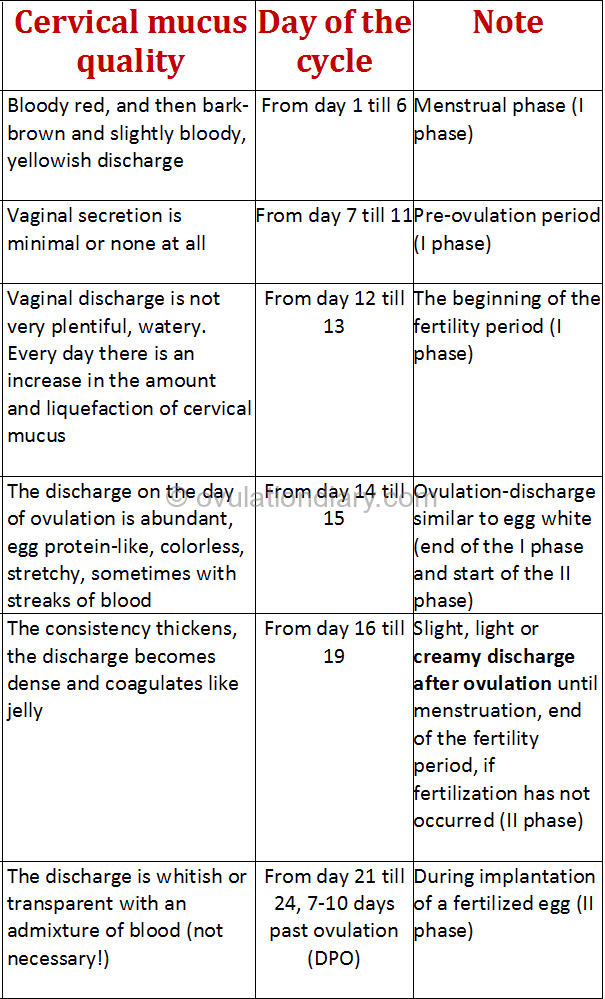 Other symptoms include itching, burning, and painful urination or intercourse.
Other symptoms include itching, burning, and painful urination or intercourse.
Green or yellow
Green or yellow vaginal discharge is not healthy and suggests a sexually transmitted infection (STI), such as chlamydia or trichomoniasis. Other possible symptoms include redness or irritation in the genitals. STIs sometimes do not cause any symptoms.
According to the Centers for Disease Control and Prevention (CDC), STIs can cause complications during pregnancy that can affect both the woman and child. These complications sometimes do not present until years after the birth, but they can affect the nervous system and development of the child and cause infertility in the woman.
People may occasionally think that they have yellow discharge when they are merely leaking small amounts of urine.
Gray
Gray vaginal discharge may indicate a vaginal infection called bacterial vaginosis (BV), particularly if it also has a fishy smell that becomes stronger following intercourse.
BV is the result of a bacterial imbalance in the vagina. Douching and having multiple sexual partners are risk factors for BV, which is the most common vaginal infection during childbearing years.
Brown
Discharge is usually brown due to old blood leaving the body, which can be an early symptom of pregnancy. Brown discharge during pregnancy is not generally a cause for concern.
However, pregnant women who experience dark brown discharge should contact their doctor.
Pink
Pink discharge during pregnancy may or may not be normal. Discharge with a pink hue often occurs during early pregnancy or in the final weeks as the body prepares for labor. It can also occur before a miscarriage or during an ectopic pregnancy.
A study with 4,510 participants found that spotting and light episodes of bleeding during the first trimester, especially those persisting for just 1 to 2 days, did not correspond with a higher risk of miscarriage.
Other causes of light spotting during pregnancy include sexual intercourse and vaginal infections.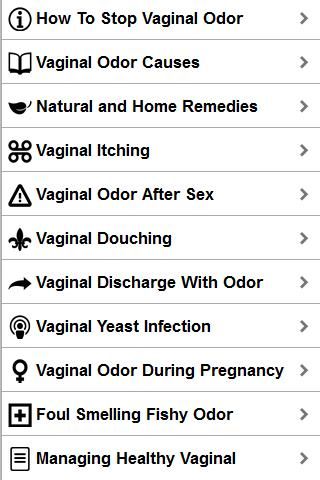
Red
Red vaginal discharge during pregnancy requires the immediate attention of a doctor, especially if the bleeding is heavy, contains clots, or occurs alongside cramping and abdominal pain.
These symptoms suggest miscarriage or ectopic pregnancy. Approximately 10 to 15 percent of pregnancies end in miscarriage, which people may also refer to as pregnancy loss.
Other causes of red discharge may be less serious, especially during the first trimester, when it may result from implantation or infection. Studies indicate that between 7 and 24 percent of women bleed during early pregnancy.
Bleeding later in pregnancy can indicate potentially serious issues or preterm labor, which will require immediate medical attention.
An increase in the volume of mild-smelling vaginal discharge during pregnancy is normal, but unusual colors and odors often indicate infection.
A doctor can prescribe antibiotics or other medications to treat infections in this area of the body.
Women can usually maintain vaginal health during pregnancy by doing the following:
- Avoiding using tampons.
- Avoiding douching.
- Choosing unscented personal care products and feminine hygiene items, including unscented toilet paper and soaps.
- Wearing panty liners to absorb excess discharge.
- Wiping the genital region from front to back after passing urine or stool.
- Drying the genitals thoroughly after showering or swimming.
- Wearing underwear made from a breathable fabric.
- Avoiding wearing tight jeans and nylon pantyhose, which increase the risk of infection.
- Eating a healthful diet and avoiding too much sugar, which can encourage yeast infections.
- Trying probiotic foods and supplements that are safe to consume during pregnancy, which may prevent bacterial imbalances in the vagina.
It is essential to discuss any unusual discharge with a doctor as this symptom may suggest an infection that requires treatment or an issue with the pregnancy. Without treatment, infections can lead to complications.
Without treatment, infections can lead to complications.
An increase in discharge during pregnancy is normal, but unusual discharge alongside strong odors or discomfort in the vagina or abdomen is often indicative of a health issue. This is also the case for discharge that is green, yellow, or gray.
Women should seek immediate medical care if they experience spotting or bleeding that is heavy, persists for more than a day, or occurs alongside pain or cramps.
Read this article in Spanish.
Vaginal Odor During Pregnancy (Causes & Remedies)
Have you recently noticed a funky smell “down there?” Wondering if it’s pregnancy-related and if it’s normal or not?
Your body goes through some crazy changes during pregnancy, some of which you would never have guessed. You knew your vagina was going to have to stretch to push out a baby, but you probably didn’t know you’d acquire a whole new aroma down there.
In this article, we will talk all about vaginal odor during pregnancy, what causes it, when you should see your doctor, and how to eliminate the smell.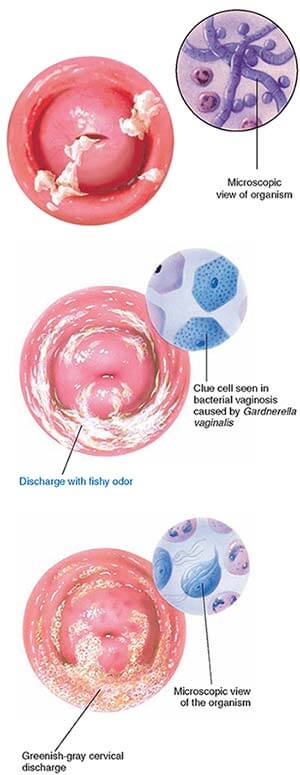
Table of Contents
- Is Vaginal Odor Normal During Pregnancy?
- Causes Of Vaginal Odor During Pregnancy
- When Should I Call the Doctor?
- How to Get Rid of Vaginal Odor
- To Sum it Up
Is Vaginal Odor Normal During Pregnancy?
Even though it can be unpleasant and embarrassing, vaginal odor is actually quite normal during pregnancy. Around 65 percent of women report they have experienced vaginal odor throughout their pregnancies. Vaginal odor can even be one of the first symptoms of pregnancy.
If the aroma started after you conceived, it is most likely pregnancy-related. Your odor can range from faint to very strong and is usually nothing to worry about.
But remember that every pregnancy is different. You may experience vaginal odor throughout this entire pregnancy and then have none with the next. The odor may also be more apparent during certain trimesters.
Causes Of Vaginal Odor During Pregnancy
There are various reasons why you may be experiencing vaginal odor during pregnancy.
The physiologic vaginal discharge during pregnancy is known as leukorrhea. This is a thin, white discharge that feels wet. While you may feel like the odor slightly changes, it should not smell foul, and it should not itch or cause pain. Leukorrhea is caused by increased pregnancy hormones and blood flow to your reproductive organs.
Editor's Note:
Caitlin Goodwin, MSN, RN, CNM
Let’s take a look at some of the most common causes:
- Hormones: Your body is going through massive hormonal changes now that you’re pregnant, and that triggers all sorts of physical changes. This can include increased secretions from your vagina, which often cause a strong odor (1). You may also just be more sensitive to smell and are noticing what already existed, thanks to the extraordinary amounts of estrogen in your growing body.
- Diet: Pregnant women are also more likely to experience changes in vaginal odor due to diet.
 Spicy foods, fish, coffee, garlic, onion, broccoli, and dairy products could be the cause of your unpleasant smell.
Spicy foods, fish, coffee, garlic, onion, broccoli, and dairy products could be the cause of your unpleasant smell. - Dehydration: If you notice a strong ammonia smell, you may be dehydrated. Remember you need more fluids when you’re pregnant, as your body is working for two now. Try to drink at least two liters of water per day.
- Yeast infection: You’re more at risk for yeast infections when you’re pregnant because you have more sugar in your vaginal secretions on which the yeast can feed, creating an imbalance and an overgrowth of yeast (2).
- Bacterial infection: Bacterial vaginosis (BV) is the most common vaginal infection in pregnant women and is caused by an imbalance of bacteria living in your vagina. With BV, a fish-like vaginal odor is most apparent after sex. While research may be unclear about what specifically causes this bacterial imbalance, you can reduce your chances of getting BV by practicing safe sex, not smoking, and not douching (3).
 If you notice a fishy odor, seek care from your healthcare provider immediately. Having BV increases your risk of experiencing preterm labor.
If you notice a fishy odor, seek care from your healthcare provider immediately. Having BV increases your risk of experiencing preterm labor. - Viruses or STDs: Viruses, like herpes simplex and other STDs, could also be the cause of your unpleasant aroma.
When Should I Call the Doctor?
While vaginal odor is often completely normal during pregnancy because of hormones, increased blood volume, or diet, sometimes it can be a sign of an infection or virus.
It’s best to contact your healthcare provider if you have a pungent vaginal odor that lasts for an extended period or if it’s coupled with any of the following:
- Redness.
- Itching.
- Irritation.
- Burning.
- Painful urination.
- Unusual discharge — change in color, consistency, and amount.
Your doctor will examine a sample of your vaginal fluid and cervical secretions to see if you have an infection.
I know you may feel quite embarrassed by this newfound smell, but don’t worry, there is no need to be.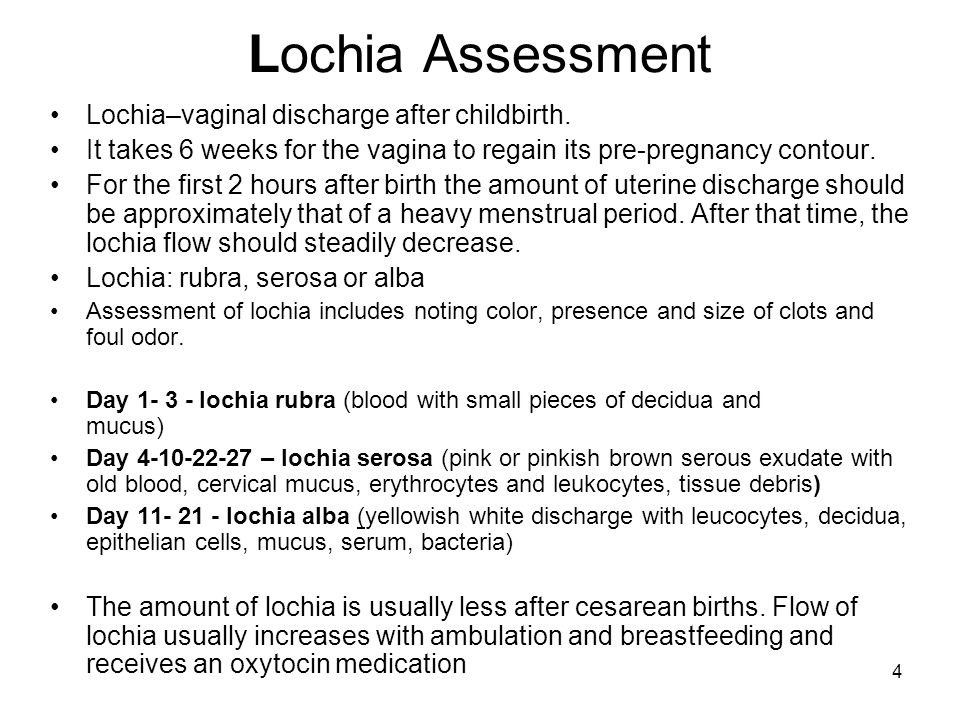 Midwives and OBs have pretty much seen it all.
Midwives and OBs have pretty much seen it all.
If you have a yeast infection, your provider will most likely prescribe or recommend an over-the-counter antifungal cream. If your vagina or vaginal discharge has a particular “fishy” smell to it, it’s likely you have bacterial vaginosis and will be put on a course of antibiotics to clear up the infection.
Urgent
It’s critical to see your medical provider if you think you may have BV, as it has been associated with certain pregnancy complications such as preterm labor, low baby birth weight, premature rupture of membranes, and uterine infection after delivery.
How to Get Rid of Vaginal Odor
If all your tests come back negative for yeast infections, bacterial infections, and STDs, your changing hormones are probably responsible for the odor. It will most likely go away once your baby is born.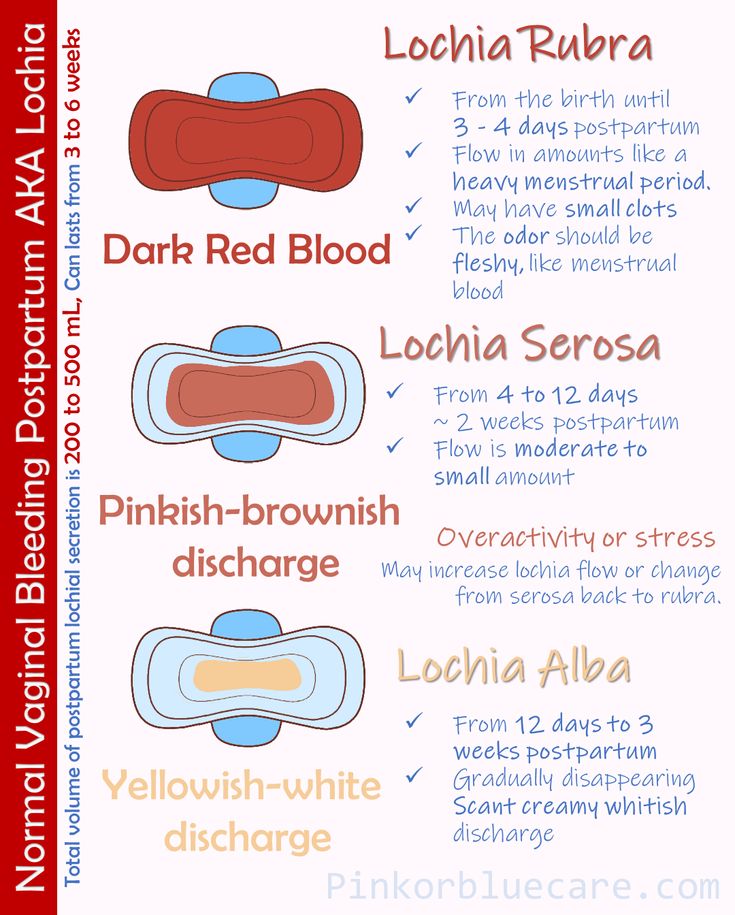
Until then, remember that less is more when it comes to cleaning yourself.
Fun Fact
Your vagina cleans itself. It’s lined by a variety of glands that lubricate and cleanse the area. There is no need to force any bath product or water into your vagina (4).
In the meantime, you can try some of these techniques to help eliminate the smell:
- Practice proper hygiene: Wash the outside of your vagina with mild soap and water once a day. Avoid using loofahs, as they can create small tears and expose the area to possible infection (5).
- Don’t douche: Forcing water, or any cleansing agent, into your vagina can destroy healthy bacteria or even push an infection up into your uterus. Douching is never a good idea, pregnant or not.
- Use cotton underwear: Wearing the right underwear can help cure your pregnancy odor. Find some comfortable, loose-fitting 100-percent cotton underwear.
 This will create a breathable, dry environment for your nether regions, as cotton will wick away any excess moisture from sweat or discharge.
This will create a breathable, dry environment for your nether regions, as cotton will wick away any excess moisture from sweat or discharge. - Change underwear frequently: Changing your underwear frequently will also help cut down on the moisture and the smell.
- Cut out tight-fitting clothes: We know yoga pants can be quite comfy, especially during pregnancy, but it’s best to wear clothes that will let your lady bits breathe.
- Switch out cosmetic products: Scented soap and other feminine products can irritate or even contribute to the smell. Try using unscented products or even just plain warm water to keep clean.
- Change in diet: A well-balanced diet will help keep your entire body healthy, including your vagina. Eating too much sugar may encourage yeast to thrive. Ensure you’re getting plenty of fruits, veggies, whole grains, and protein. You could also try eliminating certain foods, such as garlic and broccoli, and adding in probiotic-rich foods, like yogurt, kefir, and sauerkraut.

- Stay hydrated: Make sure you’re drinking plenty of water to help cut back on the ammonia scent and encourage healthy sweating and fluid release. Pregnant women should drink between 8 to 10 eight-ounce glasses of fluids per day (6).
If you’re going to wear panty liners, try to use all-cotton liners or at least liners that aren’t scented. The extra scent might irritate your skin and doesn’t really help the odor.
Editor's Note:
Caitlin Goodwin, MSN, RN, CNM
To Sum it Up
Your new vaginal aroma may be unpleasant and embarrassing, but remember that you are not alone, mama. Vaginal odor is actually quite common during pregnancy and is often just due to hormones. It will probably vanish after your baby is born.
However, the odor can sometimes be a sign of an infection, so be sure to watch out for any “fishy” scent, burning, irritation, or redness.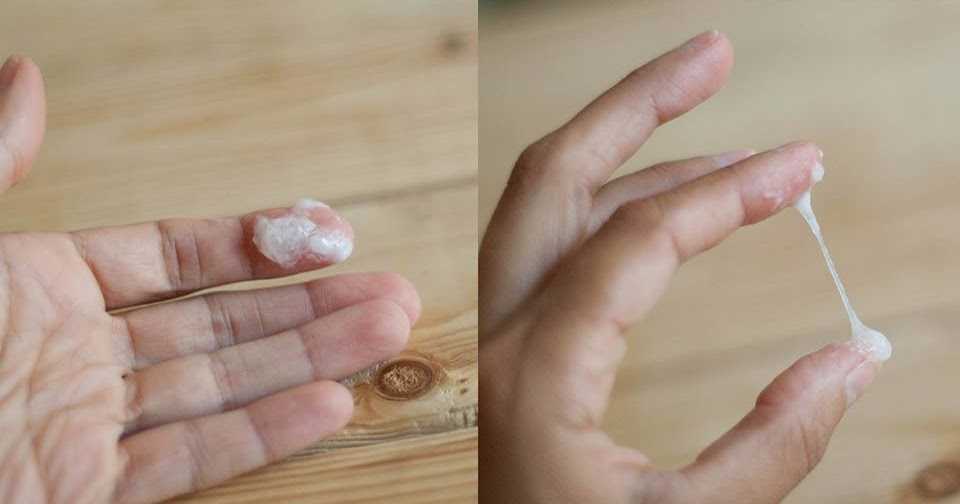 Otherwise, practicing proper hygiene, using cotton undies and pantyliners, avoiding douching and scented soaps, and changing your diet will help reduce the funk.
Otherwise, practicing proper hygiene, using cotton undies and pantyliners, avoiding douching and scented soaps, and changing your diet will help reduce the funk.
Feedback: Was This Article Helpful?
Thank You For Your Feedback!
Thank You For Your Feedback!
What Did You Like?
What Went Wrong?
Pregnancy discharge | What are the discharge during pregnancy? | Blog
In the absence of menstruation, girls usually suspect that conception has occurred. However, during pregnancy, the female body may continue to secrete a secret of a different color and character. We recommend that you keep a close eye on everything that happens so as not to miss the development of adverse events. We will talk about how to recognize problem situations during pregnancy in the article.
What discharge can occur during conception
Many women note that immediately after the delay and in the later stages, the nature of the secretion changes. It can be:
- With or without scent.

- Depending on the color - transparent, white, cream, yellow, greenish, bloody.
- By consistency - thick, liquid, cheesy.
- As a symptom for assessing the state of health - threatening, safe.
During ovulation, the egg is released from the ovary, its membrane is deflated, a small amount of fluid is released - so it becomes ready for fertilization. At this time, the thick mucus that fills the cervical canal of the cervix becomes less viscous. This makes it easier for the spermatozoa to penetrate and move further into the tubes for fertilization. At this time, you may notice an abundance of clear mucous secretions. nine0003
After the fusion of the egg with the spermatozoon, movement into the uterus begins, which should end with implantation in the inner layer. During penetration, its slight detachment may occur - this causes damage to the blood vessels that abundantly penetrate the muscular layer of the uterus. You may see light brown discharge, which is common during pregnancy. The color is due to the fact that the blood has time to clot.
The color is due to the fact that the blood has time to clot.
Sometimes the discharge is brightly colored and some women mistake it for a period that has started too early. But in this case, a short duration is characteristic, a different shade (dark or scarlet), a slight mark on the linen. nine0003
With some features of the structure of the female genital organs (for example, with a bicornuate uterus), after implantation of the embryo in one part, rejection of the endometrium may begin in the other, as usually occurs during menstruation. This rarely happens.
Characteristics of discharge in the event of a threatened miscarriage
Spontaneous abortion is the rejection of an embryo in the early stages after conception. If at the first signs of pregnancy, you notice spotting, there is a high probability that a miscarriage begins. nine0003
Also, miscarriage symptoms include:
- pulling or pressing on the lower abdomen, sacrum, lower back;
- the muscles of the uterus are tense.
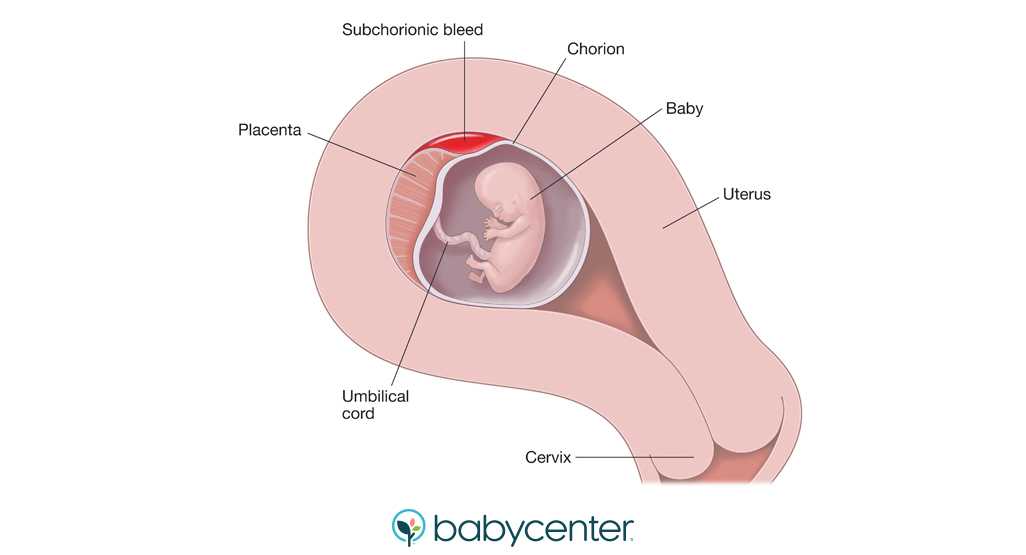
The woman may feel cramps. This continues all the time or intermittently. From the vagina there are scarlet or brown discharge during pregnancy, which was previously confirmed. Sometimes the period may be still small, and the first signs did not have time to appear.
After 22 weeks, this phenomenon is called preterm labor. The child in this case is still weak, the organs are not sufficiently developed, and there is little chance of survival. nine0003
The following factors increase the risk of miscarriage:
- various diseases;
- progesterone deficiency;
- nervous and physical overexertion;
- pathologies in the genitals;
- fetal developmental defects.
To confirm the diagnosis, the doctor prescribes an ultrasound scan. If it shows that the fetal heart rate is disturbed, the tone of the uterus is increased, its size differs from normal for this period, hospitalization will be recommended to maintain pregnancy.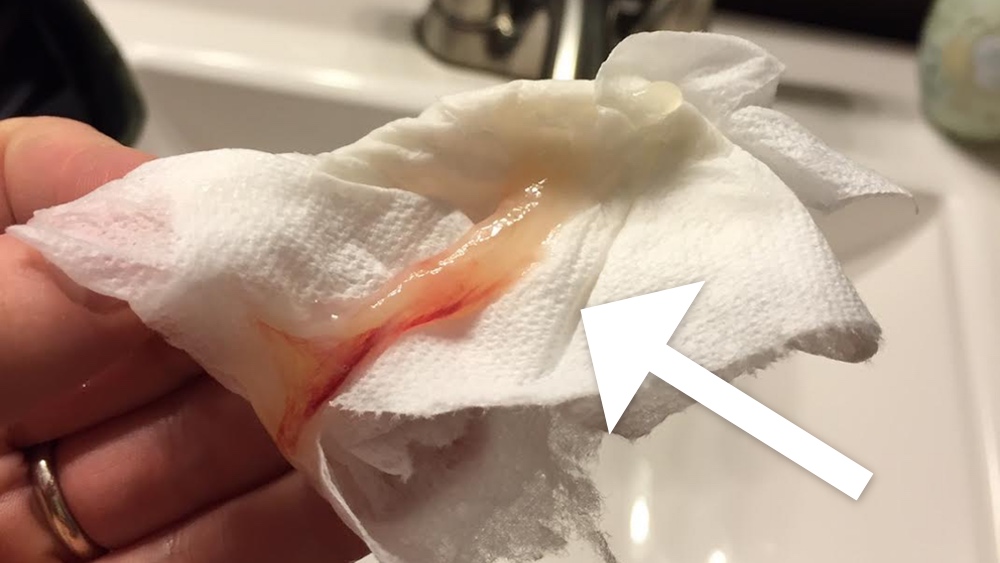 nine0003
nine0003
What discharge during pregnancy is considered normal
This secretion does not pose a threat to health:
- transparent;
- whitish;
- yellowish;
- odor free;
- mucous;
- without itching, burning, redness of the genitals.
Clear fluid on underwear is a symptom of ovulation. During pregnancy, the activity of ongoing processes in the body increases, so the amount of secretion secreted may increase. However, a violation of the norm is the leakage of amniotic fluid. You can determine the problem with the help of special diagnostic tests that the doctor will prescribe if he has suspicions. nine0003
White color, small amount, homogeneous structure should also not cause concern. The increased volume of fluid in this case is associated with increased hormonal activity.
One of the variants of the norm is mucous discharge, which smells of slight sourness. If there is no pain, discomfort, there is nothing to worry about.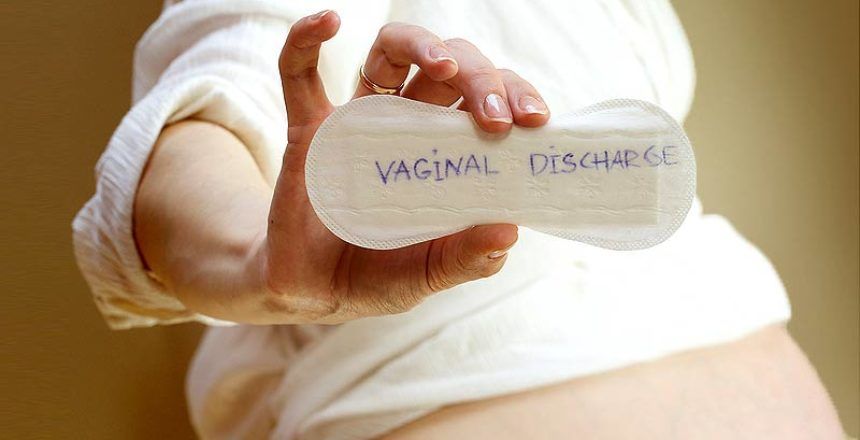
Yellow discharge, there are signs of pregnancy, there is no unpleasant odor - you are all right. Some women had this color before conception, only they did not pay attention. Now there are more of them, therefore more noticeable. nine0003
Sometimes a woman observes that the laundry gets wet and there is a smell of urine. This may indicate incontinence due to the constant pressure of the growing uterus. In this case, it is recommended to go to the toilet more often, change underpants twice a day.
What discharge during pregnancy is considered a sign of infection?
White discharge during pregnancy with a cheesy texture is a symptom of thrush (candidiasis). In pregnant women, it is diagnosed quite often - the reason is a change in hormonal levels. The disease is accompanied by itching, redness of the vulva, a strong sour smell. Sometimes external manifestations are not detected, then treatment is not carried out. nine0003
Infection is indicated by pain, pain, skin irritation, ulcers, smell of rot or fish, gray or green color, frothy discharge, increased nervousness, large inguinal lymph nodes.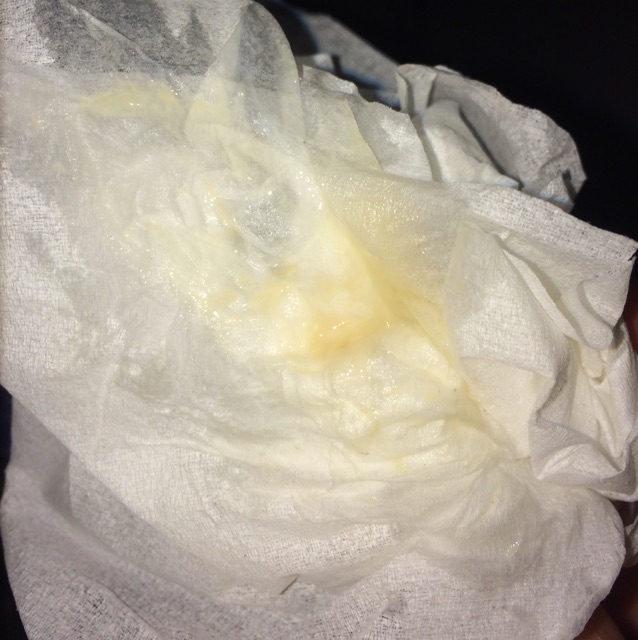 The reason may lie in sexually transmitted infections. This includes syphilis, gonorrhea, trichomoniasis, chlamydia and others. They are dangerous because they cause premature birth and fetal developmental defects.
The reason may lie in sexually transmitted infections. This includes syphilis, gonorrhea, trichomoniasis, chlamydia and others. They are dangerous because they cause premature birth and fetal developmental defects.
What kind of discharge during pregnancy should I pay special attention to and should I consult a doctor? nine0005
The following indicates that pregnancy is at risk:
- Severe pain in the perineum, bleeding, difficulty defecation, convulsions - these may be injuries to the vaginal mucosa.
- Nausea, profuse vomiting, edema, headaches, cough, hypertension, bright red secretion are symptoms of hydatidiform mole (abnormal development of the embryo).
- A drop in blood pressure, pallor, weakness, sweating, pulling sensations, bleeding during pregnancy against the background of a lack of growth of hCG in the blood - this is how ectopic attachment manifests itself. nine0010
- Isolation of clots, sharp pain, vomiting, diarrhea may indicate a frozen fetus.

If you experience any of these symptoms, contact your doctor immediately.
It is also necessary to go to the clinic if you have been physically abused, had rough sex, had an accident, fell, hit. The likelihood that the situation will be resolved successfully is much higher if you do not delay the visit, listen to the symptoms and take good care of your health. nine0003
Remember that although pregnancy is a normal state of health for a woman's body, the diagnosis and treatment tactics differ due to the many restrictions on manipulations and medications during pregnancy. That is why diagnosis and treatment during pregnancy should take place only under the supervision of a physician. By ignoring the symptoms or self-medicating, a pregnant woman risks not only her health, but also the health of her child.
Doctors of the Leleka maternity hospital manage pregnancies of any complexity, including those aggravated by infections, pathologies, and the threat of miscarriage.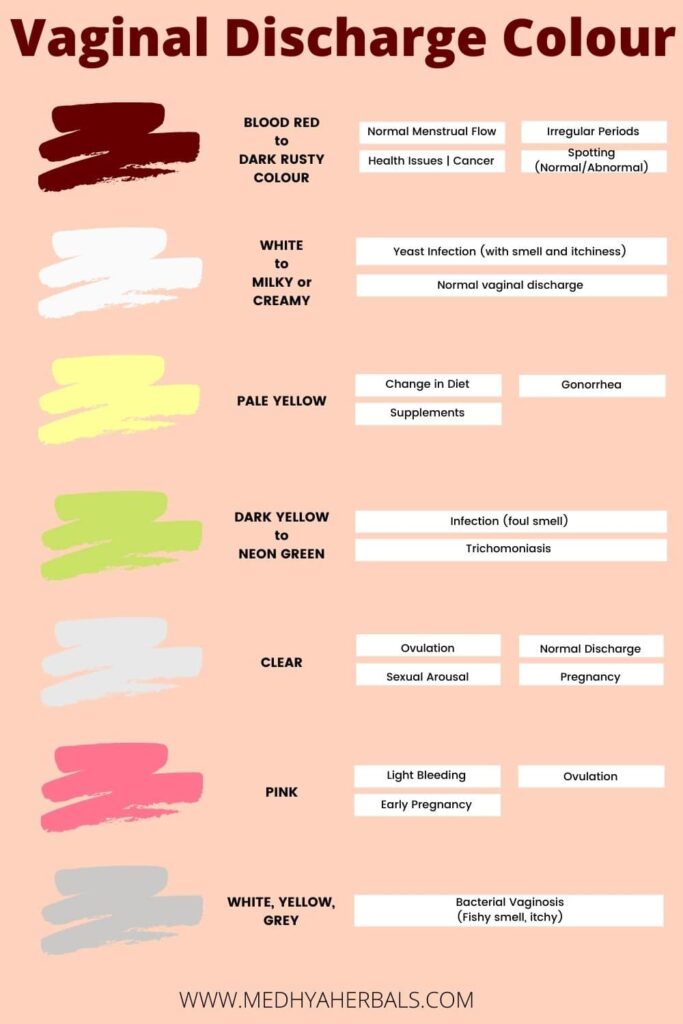 Our own diagnostic laboratory allows us to get the results of the analyzes accurately and as soon as possible. Thanks to constant medical supervision throughout the entire period, the chances of a successful birth are greatly increased. nine0003
Our own diagnostic laboratory allows us to get the results of the analyzes accurately and as soon as possible. Thanks to constant medical supervision throughout the entire period, the chances of a successful birth are greatly increased. nine0003
Trust the life and health of your child to Leleka doctors, and we will make sure that you are satisfied.
why they appear and what they are
Pregnancy is one of the most important and exciting periods in a woman's life. In order to properly take care of yourself and the baby growing in your stomach, expectant mothers need to know what kind of discharge occurs during childbearing. "Komsomolskaya Pravda" together with obstetrician-gynecologist of the highest category Alla Pashkova sorts out which of them are considered the norm, and which are the reason for visiting the antenatal clinic.
Why discharge occurs
Every woman has vaginal discharge. Their number, color and consistency depend on many factors: the phase of the cycle (for example, during the period of egg maturation and ovulation there are quite a lot of them, and immediately after menstruation there is practically none), the woman’s health (with genital tract infections, inflammation in the pelvic organs (discharge at the same time, they often change color, an unpleasant odor appears).The discharge is also affected by the woman's complexion (in thin women, the discharge is usually more abundant than in full ones), sexual activity, the use of vaginal deodorants and intimate hygiene products, wearing synthetic underwear and other factors And, of course, the nature of the discharge is affected by pregnancy.With its onset, a woman may notice that the discharge has become much more than usual (1).0003
Their number, color and consistency depend on many factors: the phase of the cycle (for example, during the period of egg maturation and ovulation there are quite a lot of them, and immediately after menstruation there is practically none), the woman’s health (with genital tract infections, inflammation in the pelvic organs (discharge at the same time, they often change color, an unpleasant odor appears).The discharge is also affected by the woman's complexion (in thin women, the discharge is usually more abundant than in full ones), sexual activity, the use of vaginal deodorants and intimate hygiene products, wearing synthetic underwear and other factors And, of course, the nature of the discharge is affected by pregnancy.With its onset, a woman may notice that the discharge has become much more than usual (1).0003
“More abundant light discharge during pregnancy is the norm,” says Alla Pashkova, obstetrician-gynecologist of the highest category, candidate of medical sciences, author of a blog about women's health.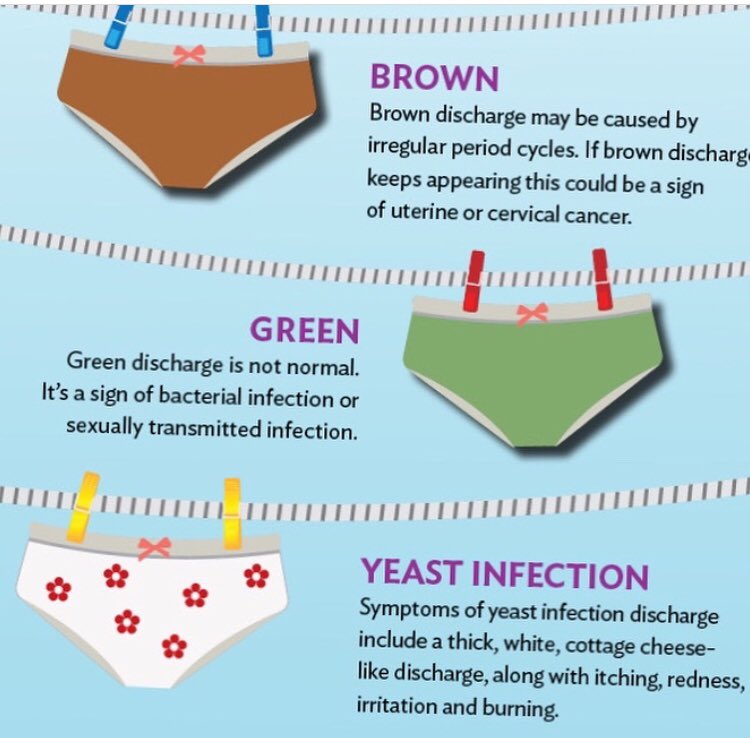 - They are enhanced under the influence of the hormone progesterone, which begins to be actively produced in the body of a woman with the onset of pregnancy and creates favorable conditions for the implantation of the embryo and its further development. If there are no complaints about a change in the color of the discharge, itching, burning, swelling of the tissues of the perineum, an unpleasant odor, then you do not need to worry and take unnecessary tests, for example, bacterial culture, it is enough to limit yourself to a smear on the flora. Allocations of various kinds can appear during early pregnancy also due to infections and with the threat of miscarriage. nine0003
- They are enhanced under the influence of the hormone progesterone, which begins to be actively produced in the body of a woman with the onset of pregnancy and creates favorable conditions for the implantation of the embryo and its further development. If there are no complaints about a change in the color of the discharge, itching, burning, swelling of the tissues of the perineum, an unpleasant odor, then you do not need to worry and take unnecessary tests, for example, bacterial culture, it is enough to limit yourself to a smear on the flora. Allocations of various kinds can appear during early pregnancy also due to infections and with the threat of miscarriage. nine0003
What are the types of discharge
Photo: Bernhard Claßen, globallookpress.com Discharge during early pregnancy can be of different colors (white, yellow, green, bloody), consistency (thick, liquid, cheesy), may have a neutral or unpleasant odor . In some cases, they do not pose a danger, they are considered a variant of the norm, in others, on the contrary, they can become an alarm about the threat of termination of pregnancy and are a reason for urgent medical attention. Together with our expert Alla Pashkova, we will analyze in more detail what the discharge of a particular nature in the early stages of pregnancy may indicate. We note right away that any deviations from the norm are a reason for an urgent visit to a doctor. nine0003
Together with our expert Alla Pashkova, we will analyze in more detail what the discharge of a particular nature in the early stages of pregnancy may indicate. We note right away that any deviations from the norm are a reason for an urgent visit to a doctor. nine0003
Light discharge
Normal vaginal discharge in most women just has a light whitish tint. They have no smell, or it is slightly sour. There are few of them - up to 4 ml per day. In pregnant women, if the pregnancy is going well, the color and smell, as a rule, does not change, but the discharge may become more abundant due to the action of the hormone progesterone. This is normal, you should not be afraid.
Learn more
White discharge
White discharge can also be normal if the woman is not bothered by anything. But if the white discharge has acquired a curdled character, itching and burning have appeared in the vagina, then this picture most likely indicates the development of vaginal candidiasis (thrush).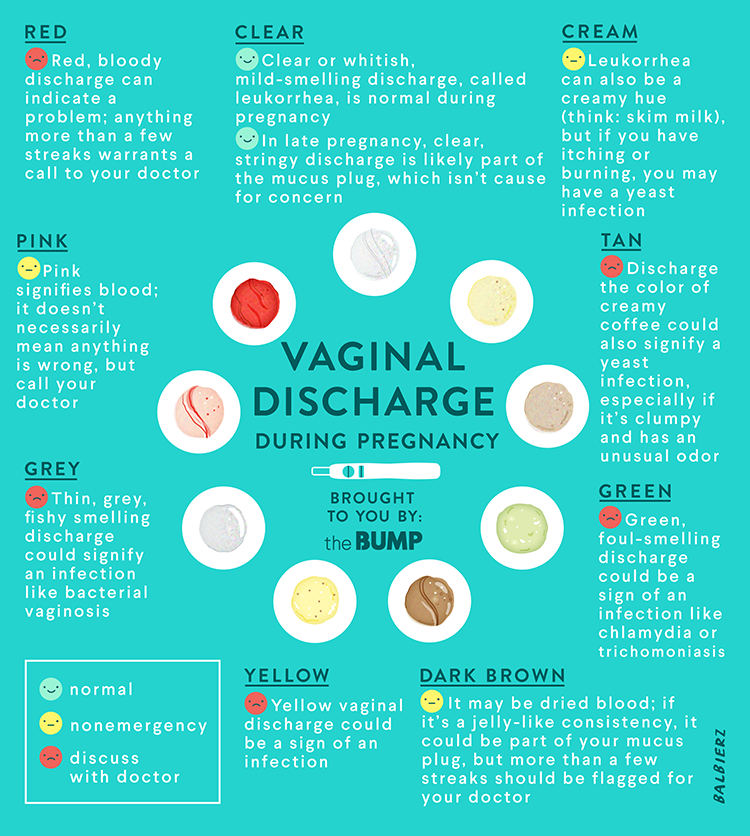 nine0003
nine0003
- Vaginal candidiasis during pregnancy is very common - up to 90 percent of women suffer from it, - says Alla Pashkova. - This is facilitated by a change in the hormonal background, namely the absence of phases of the cycle and ovulation, and excessive secretion of progesterone. It is necessary to treat candidiasis if a woman has specific complaints: a change in the nature of the discharge, a sour smell, itching in the vagina. If Candida bacteria are found in a smear on the flora, while nothing bothers you, then you do not need to take any drugs. nine0003
Clear discharge
In non-pregnant women, such heavy discharge may occur in the middle of the cycle. This is a sign of ovulation. In pregnant women, clear discharge is the norm. The main thing is not to confuse them with amniotic fluid, especially in the third trimester of pregnancy. But for this there are special tests for the determination of amniotic fluid and the doctor will always help you figure it out.
Learn more
Mucus discharge
Mucus discharge from the vagina without pain or discomfort is normal in both pregnant and non-pregnant women.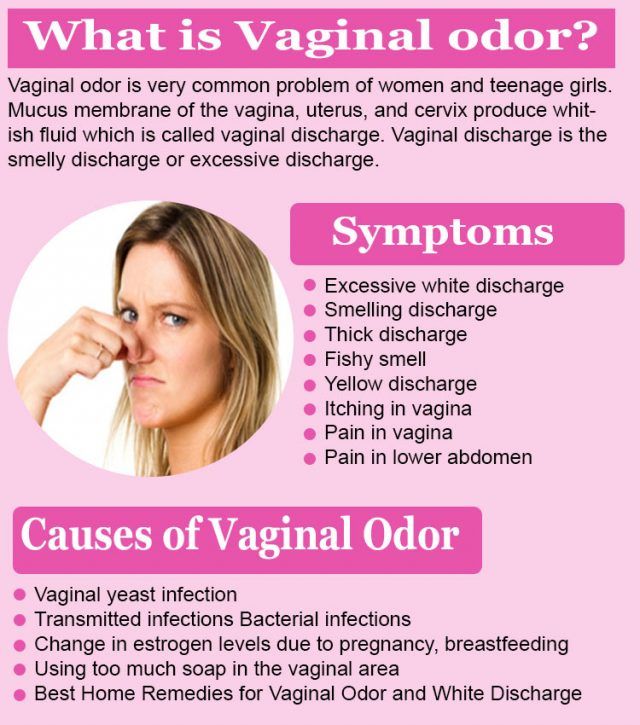 During pregnancy, they may be more due to hormonal changes in the body. nine0003
During pregnancy, they may be more due to hormonal changes in the body. nine0003
Learn more
Yellow discharge
Photo: Olga Semenova, globallookpress.com Light yellow discharge can also be normal. Most likely, before pregnancy, you had discharge of the same color. But if you notice that the discharge has become darker, an unpleasant odor has appeared - this is a reason to consult a doctor. Such discharge may indicate the presence of an inflammatory process, indicate an infection. “I note that in 90 percent of cases, the cause of changes in vaginal discharge in women and the appearance of complaints (itching, burning, changes in color, smell and type of vaginal discharge) are candidiasis, bacterial vaginosis and trichomoniasis,” says Alla Valerievna. - For candidiasis, more often white or greenish curdled discharge, accompanied by severe itching and swelling of the tissues, for gardnerellosis ( bacterial vaginosis) - grayish watery discharge with the smell of fish, with trichomoniasis - abundant purulent - frothy leucorrhoea with an unpleasant odor, tissues of the vagina and cervix swell , the neck acquires a specific appearance (symptom of strawberries) - red, with grayish zones in the form of eyes on strawberries. nine0003
nine0003
Learn more
Green discharge
Such discharge can never be a normal variant, it is often a sign of candidiasis. When such discharge occurs, you should immediately consult a doctor.
Learn more
Bleeding
Photo: West Coast Surfer, globallookpress.comBleeding during pregnancy is a separate situation that always requires a woman's special attention and medical advice. In the early stages of bleeding during pregnancy is not uncommon. nine0003
“First trimester bleeding occurs in every fourth woman,” says Alla Pashkova. “About one in seven people have a spontaneous miscarriage. But in 80 percent of cases, even in the presence of blood discharge, as well as pain in the lower abdomen, the uterine pregnancy progresses almost to term and ends with the birth of a healthy child.
The main causes of bleeding in early pregnancy may be:
- threatened or incipient miscarriage due to chorionic detachment and retrochorial hematoma; nine0010
- implantation bleeding;
- ectopic pregnancy;
- non-developing or miscarriage.
 An accurate diagnosis will be made by the doctor based on the dynamics of the level of hCG in the blood, as well as ultrasound studies;
An accurate diagnosis will be made by the doctor based on the dynamics of the level of hCG in the blood, as well as ultrasound studies; - spontaneous reduction (loss) of one of the embryos during multiple pregnancy;
- incomplete cystic drift - when, due to genetic disorders, the development of the embryo does not occur, and the chorionic villi grow in the form of bubbles filled with liquid. This pathology is very rare. nine0010
It is important to understand that bleeding during pregnancy is unpredictable and can change within hours (2). Therefore, in any case, blood discharge during pregnancy, no matter if it is scanty, spotty or abundant, pink with small streaks of blood, brown or scarlet, is ALWAYS a reason for an urgent internal examination by a doctor. Below we will talk about the possible causes of spotting of different colors. It should be noted that the division into colors is rather arbitrary, and the exact cause of the discharge by the brightness of their color, their intensity cannot be determined without additional examination.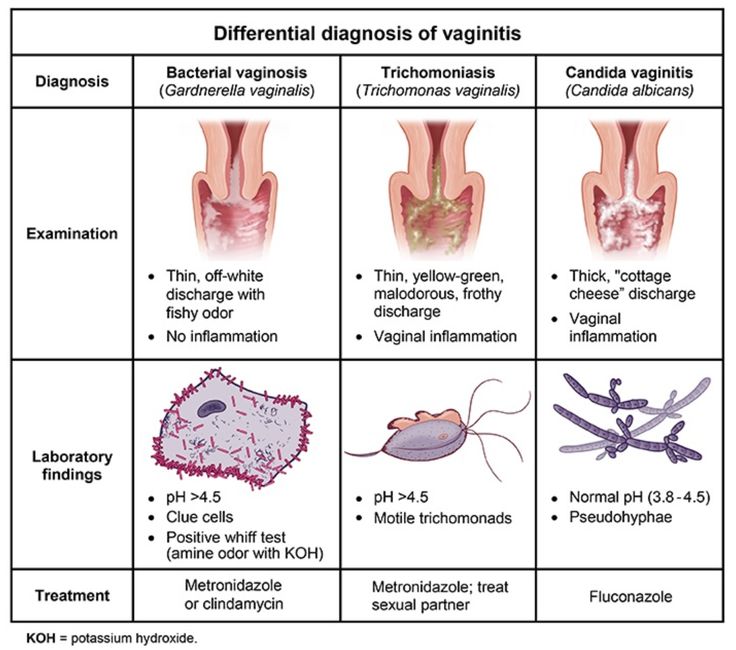 nine0003
nine0003
Pink discharge
Photo: Liz Gregg, globallookpress.comIf you notice pinkish discharge or small streaks of blood on your underwear, this may indicate implantation bleeding, which is quite common.
- It occurs at the stage of implantation of the ovum. This is 6-7 days after conception or 21-22 days of the menstrual cycle, when there is no delay yet, explains Alla Pashkova. But such women are very, very few. But there is also a second stage of implantation bleeding - during the period of growth of the chorion, it often occurs at the time of an already existing delay in menstruation - 4-5 weeks from the last menstruation or 3 weeks after fertilization. This type of implantation bleeding occurs in many women - about a quarter of pregnant women. In addition, at 7-8 weeks, when a luteoplacental shift occurs and progesterone begins to be produced not by the corpus luteum of the ovary, but by the chorion, the progesterone level may drop, and the pregnant woman may experience bleeding.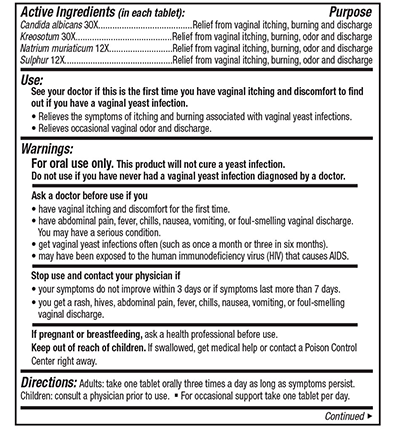 It's also not scary and safe. The main thing you should remember is that the peculiarity of implantation bleeding is that it is short-lived, scarce and usually takes only a few hours. But in any case, this is a reason to promptly consult a doctor to exclude a possible threat of termination of pregnancy. nine0003
It's also not scary and safe. The main thing you should remember is that the peculiarity of implantation bleeding is that it is short-lived, scarce and usually takes only a few hours. But in any case, this is a reason to promptly consult a doctor to exclude a possible threat of termination of pregnancy. nine0003
Learn more
Brown discharge
Brown discharge can also be a sign of implantation bleeding, which we discussed above. If such discharges are observed at the time indicated above, there are very few of them, and they pass quickly, then most likely there is nothing to worry about.
But brown discharge can also be a very alarming signal.
— For example, with an ectopic pregnancy against the background of a positive pregnancy test, there may be spotting, usually minor, spotting, says Alla Pashkova. - On average, these symptoms appear with an ectopic pregnancy at 7 weeks. At the same time, pains are noted in the lower abdomen, more on one side, and pains can also appear during urination and defecation.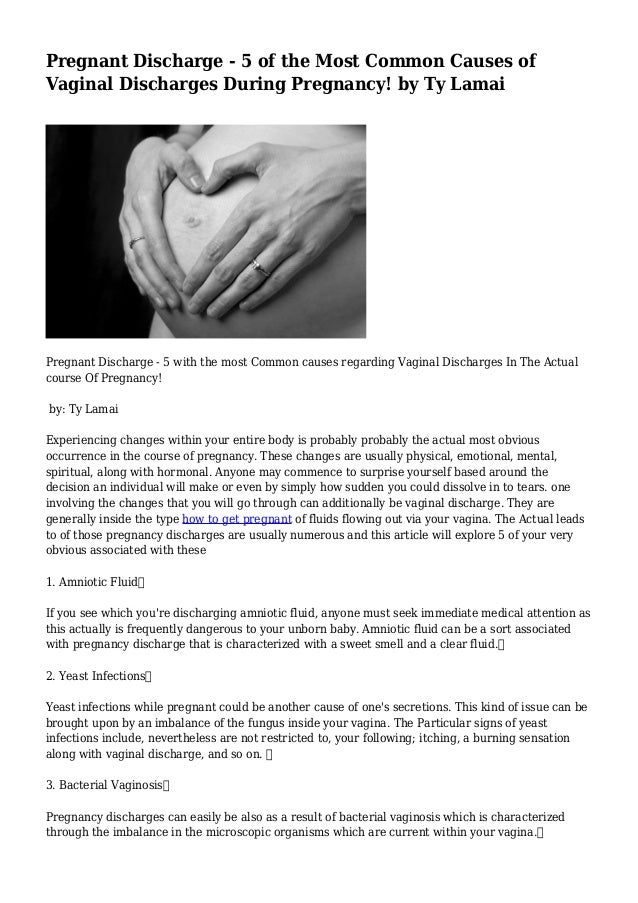 It is urgent to consult a doctor to confirm or exclude an ectopic pregnancy. nine0003
It is urgent to consult a doctor to confirm or exclude an ectopic pregnancy. nine0003
Learn more
Scarlet discharge
Photo: Liz Gregg, globallookpress.comBlood discharge, when it comes to blood clots, bright scarlet discharge, heavy bleeding, always scares a pregnant woman. Indeed, such secretions in most cases indicate a threat or a miscarriage that has begun due to detachment of the chorion and retrochorial hematoma (or subchorial, when blood accumulates between the chorionic membrane covering the embryo and the uterine wall). Up to 60 percent of hematomas in the 1st trimester are of this type. More often, subchorial hematomas are detected at the 8th week of pregnancy, on average, their volume is 1.5 ml of blood. With heavy bleeding, a woman is placed in a hospital, while ultrasound in the uterine cavity shows a live fetal egg with an embryo and a heartbeat, the pregnancy is prolonged and not interrupted, hemostatic hemostatic drugs are used. nine0003
“It is worth noting that every fourth or fifth pregnancy ends in a miscarriage in the first three months,” says Alla Pashkova. - At the same time, in 90-95 percent of cases, this situation does not repeat itself again, and a woman has every chance of becoming a mother. After a single miscarriage, there is no need to conduct an in-depth examination to identify its causes.
- At the same time, in 90-95 percent of cases, this situation does not repeat itself again, and a woman has every chance of becoming a mother. After a single miscarriage, there is no need to conduct an in-depth examination to identify its causes.
Popular Questions and Answers
Expectant mothers during pregnancy are concerned about the presence of discharge. Together with the gynecologist Alla Pashkova, we will analyze popular questions and answer them. nine0003
What does nipple discharge mean in early pregnancy?
Breast changes occur from the very beginning of pregnancy, but are not always felt by the expectant mother (3). There may be a discharge in the form of a liquid of a yellowish tint. Thus, the mammary glands prepare for lactation and reproduce colostrum. If the discharge is painful or mixed with blood, you should definitely consult a doctor.
Is it possible to determine pregnancy by discharge before the delay?
It is impossible to determine pregnancy only by discharge.